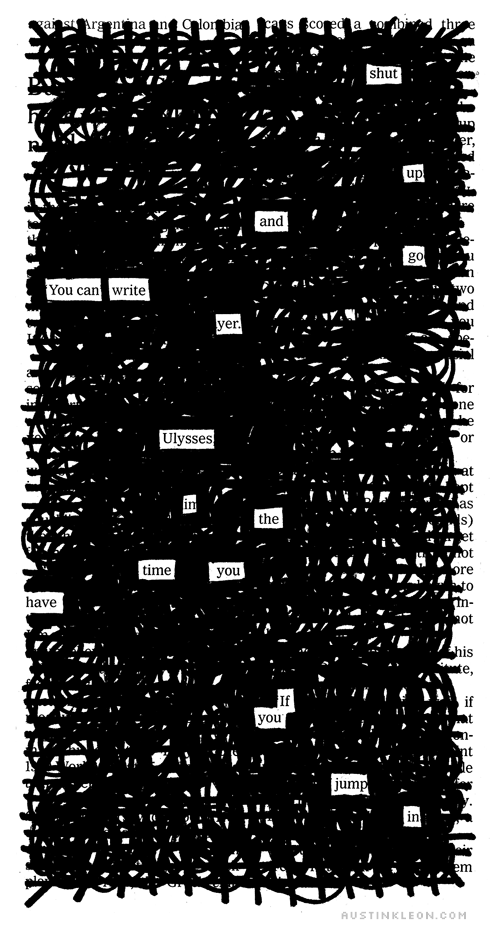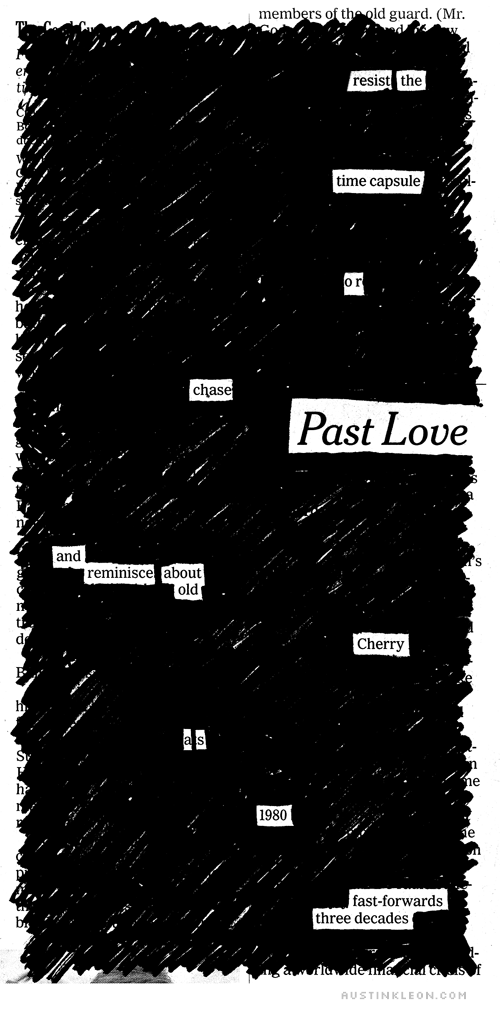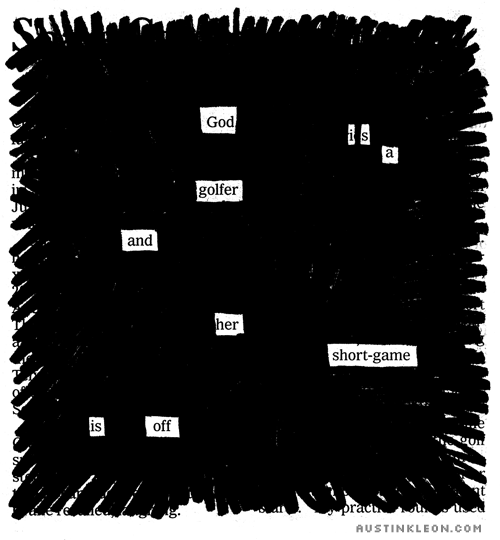
Funny enough, this came from an article about soccer player Herculez Gomez. “Ulysses” is the name of his younger brother.
- Read more poems in the book, Newspaper Blackout
- Buy prints in the store
- Share your own poems on the Newspaper Blackout Tumblr

Funny enough, this came from an article about soccer player Herculez Gomez. “Ulysses” is the name of his younger brother.

This one gave me a lot of trouble. Still not happy with it, but so it goes. In progress:
Reminder to Austin folks: I’ll be reading at Domy Books on Thursday night, at 7:30. Come make some poems and get a t-shirt:

I feel like good stuff comes out in Q&A interviews — whenever I find a new writer I like, I seek out any interviews I can find. I’ve done a lot of interviews recently, thought I might excerpt a few here.
With Lori Hettler:
What did you want to be when you were growing up?
I wanted to be Shel Silverstein. I remember seeing his photo and his bio on the back of Where The Sidewalk Ends. It said he writes books but he also “writes songs, draws cartoons, sings, plays the guitar, and has a good time.” A Renaissance man. That’s who I wanted to be.
What’s a day in the life of Austin Kleon like?
It’s not glamorous. I get up at 7:30 and go to work in a cubicle. I work on a college campus here in Texas, so I’ll spend my hour lunch break reading, making poems, or browsing one of the good university libraries. I get back home a little before 6, have dinner with my wife, walk the dog, and try to get some drawing and writing done. I get into bed at 10PM and read until I fall asleep. Rinse and repeat.
With The Austinist:
I’m really wary about making art for other artists. I just think that’s the craziest thing I’ve ever heard, because the best compliment I get from anyone is, “Dude, I don’t even like poetry and I loved your book.” You’ve got someone hooked that way, and I have to think if someone reads my poems and they like them, maybe that’s the gateway drug.
With Drew Dernavich:
Do you see any similarities with your book and the Dadaists?
I really don’t identify with the Dadaists at all. The only thing random about my technique is the article I pick. That’s it. Everything else is a process of deliberate choosing. Again, it’s the idea of turning this avant garde, random technique into something that’s readable. Tzara thought even a random poem would still resemble you, but I don’t buy it. For one thing, it’s not interesting to me as a reader. Why would I want to read some random gibberish that a guy pulled out of the hat? Now, Burroughs, he thought that the cut-up method could pull you out of your own ego. But frankly, I don’t want authors to escape their egos. I go back to my favorite writers to hear their voice, to experience their “best selves” that they’ve put out in their writing.
In other news, the folks at Badgerdog here in Austin raised $250 last night at their silent auction with this Newspaper Blackout goodie spread:
Beer, Sharpies and newspapers — looks like my studio.
This site participates in the Amazon Affiliates program, the proceeds of which keep it free for anyone to read.